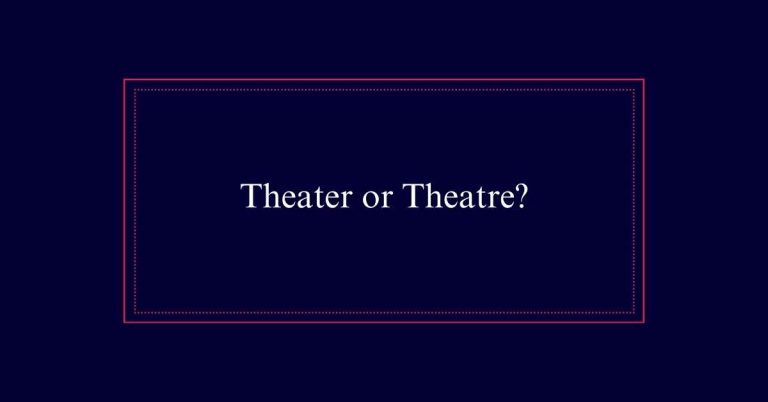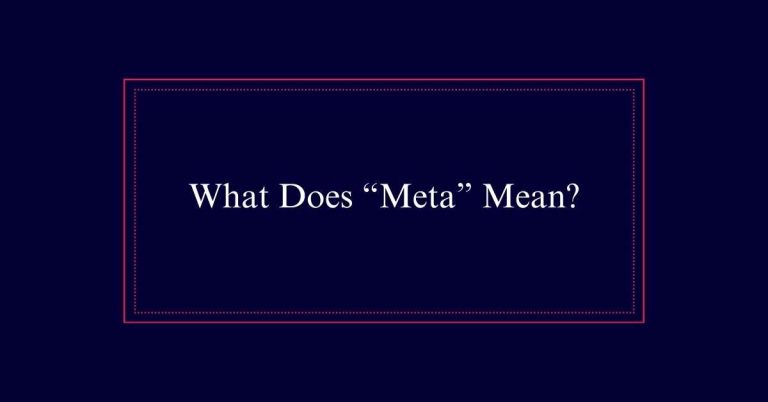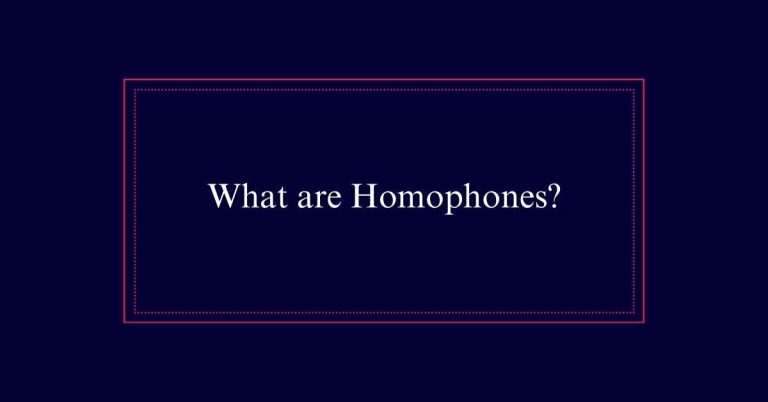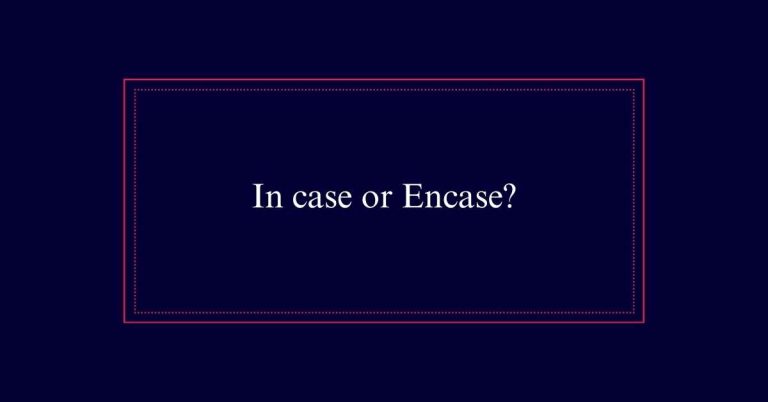What Is a Gerund Phrase?
A gerund phrase is a group of words that begins with a gerund, an -ing verb form that acts as a noun. These phrases can serve as subjects, objects, or complements within a sentence. For example, in “Swimming in the ocean is fun,” the gerund phrase “swimming in the ocean” functions as the subject. Gerund phrases can also include modifiers or objects to form complete noun phrases.
Understanding Gerund Phrases
Understanding gerund phrases begins with recognizing their role as verb forms that function as nouns. These phrases start with a gerund, which is a verb ending in -ing.
For example, in the sentence, ‘Running with scissors is dangerous,’ the phrase ‘running with scissors’ acts as the subject. Gerund phrases can also serve as objects. Consider, ‘Tim enjoys running with scissors,’ where the phrase is the object of ‘enjoys.’
Another example is, ‘Tim attributes his high blood pressure to running with scissors,’ showing the gerund phrase as an indirect object. Additionally, gerund phrases can appear alone or with modifiers to form complete noun phrases, as in ‘Running with scissors is risky.’
Gerund Vs. Participle Phrases
While gerund phrases function as nouns, participle phrases act like adjectives or adverbs. This distinction is essential for understanding their roles in sentences.
A gerund phrase, such as ‘running with scissors,’ can serve as the subject, object, or complement. For instance, in ‘Tim enjoys running with scissors,’ the phrase is the direct object of the verb ‘enjoys.’
Conversely, a participle phrase modifies nouns or pronouns. In the sentence ‘Running with scissors, Tim charged after the cat,’ the phrase ‘running with scissors’ describes Tim, providing more information about his actions.
Clear differentiation between these phrases helps in constructing grammatically correct sentences and avoiding common errors.
Gerund Phrases as Adjectives
Can gerund phrases act as adjectives in sentences? Yes, they can, but this usage is rare. A gerund phrase primarily functions as a noun. When it acts like an adjective, it often causes confusion with participle phrases. For instance, consider “The feeling of running with scissors excited him.” Here, “running with scissors” modifies “feeling,” making it resemble an adjective-like function.
| Emotion | Example | Explanation |
|---|---|---|
| Curiosity | “The feeling of running with scissors…” | Intrigues readers with the unusual activity. |
| Confusion | “Running with scissors excited him.” | Illustrates the subtle difference in phrase usage. |
| Clarity | “Running is dangerous.” | Demonstrates clear gerund usage as a subject. |
Gerund Phrases as Adverbs
In addition to acting as nouns, gerund phrases can also function as adverbs, modifying verbs, adjectives, or other adverbs in a sentence.
When used as adverbs, gerund phrases provide additional information about the action or quality described.
For example, in the sentence ‘Tim improved his skills by practicing daily,’ the gerund phrase ‘by practicing daily’ modifies the verb ‘improved,’ explaining how Tim’s skills got better.
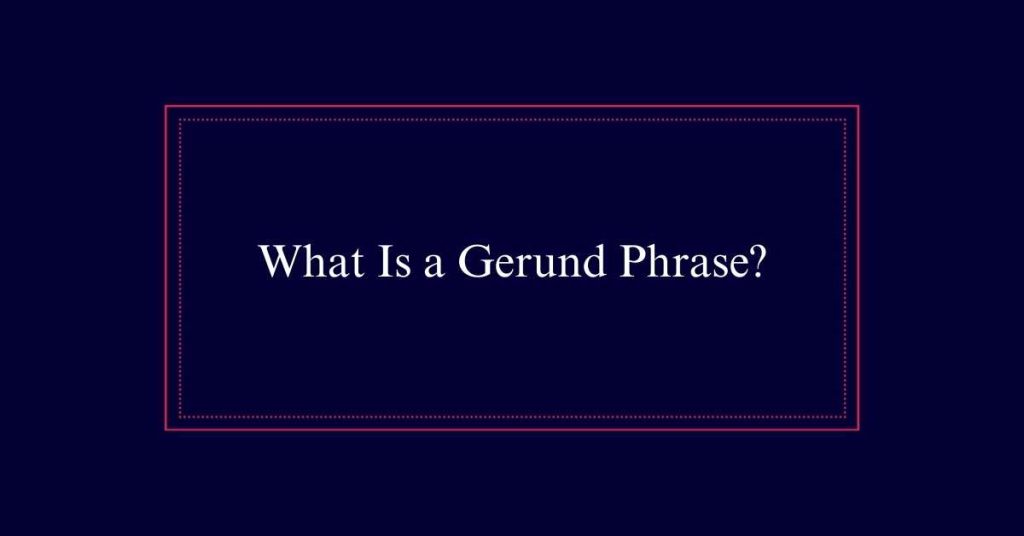
Similarly, ‘He is happy about winning the award’ uses the gerund phrase ‘about winning the award’ to modify the adjective ‘happy,’ indicating the reason for his happiness.
Gerund Phrases as Objects
Gerund phrases often function as objects within a sentence, providing essential information about the action being performed.
When used as objects, gerund phrases can be direct or indirect. For instance, in the sentence ‘Tim enjoys running with scissors,’ the gerund phrase ‘running with scissors’ serves as the direct object of the verb ‘enjoys.’
Similarly, in ‘Tim attributes his high blood pressure to running with scissors,’ the gerund phrase functions as an indirect object, providing more details about the cause. These phrases enhance sentences by offering additional context.
Dangling Gerunds
Securing gerunds occur when the subject of the gerund phrase and the main clause do not match, leading to confusion. This mismatch creates ambiguity and makes the sentence harder to understand.
For instance, in the sentence ‘By running with scissors, Tim’s knee suffered some battle scars,’ the gerund phrase ‘By running with scissors’ does not clearly connect to the subject ‘Tim’s knee.’ Instead, it seems as though the knee itself was running with scissors. Such sentences can confuse readers about who or what is performing the action.
To guarantee clarity, the subject of the gerund phrase should logically match the subject of the main clause.
Correcting Dangling Gerunds
To correct dangling gerunds, make sure that the subject of the gerund phrase aligns logically with the subject of the main clause.
For instance, in the sentence ‘By running with scissors, Tim’s knee suffered some battle scars,’ the gerund phrase ‘by running with scissors’ does not logically connect with ‘Tim’s knee.’
To fix this, rewrite the sentence so that the subject of the gerund phrase matches the main subject: ‘By running with scissors, Tim suffered some battle scars on his knee.’ This alignment clarifies the sentence and eliminates confusion.
Always make certain that the subject performing the action in the gerund phrase is clearly stated to prevent dangling gerunds.
Gerund Phrases as Subjects
Using gerund phrases as subjects can bring variety and nuance to your sentences. A gerund phrase consists of a gerund, its objects, and any modifiers. When used as subjects, they act like nouns. For example, ‘Running is a good way to expand your worldview.’ Here, ‘Running’ is the subject of the sentence.
Below is a table showcasing examples of gerund phrases used as subjects:
| Sentence | Gerund Phrase as Subject |
|---|---|
| Running is enjoyable. | Running |
| Swimming in the ocean is invigorating. | Swimming in the ocean |
| Baking cakes brings joy. | Baking cakes |
| Reading books broadens the mind. | Reading books |
Gerund Phrases as Predicate Nominatives
Gerund phrases can also function as predicate nominatives, providing a clear and concise way to describe the subject. In this role, the gerund phrase follows a linking verb and renames or explains the subject.
For example, in the sentence ‘Her favorite pastime is reading historical novels,’ the gerund phrase ‘reading historical novels’ acts as the predicate nominative, renaming the subject ‘pastime.’ This usage helps to give more detail about the subject in a succinct manner.
Predicate nominatives are essential in adding depth and clarity to sentences. By using gerund phrases in this way, writers can convey complex ideas more efficiently.
Examples of Gerund Phrases
Examples of gerund phrases highlight their versatile roles in sentences. Gerund phrases can act as subjects, objects, or complements.
For instance, in ‘Running is a favorite activity,’ the gerund phrase ‘Running’ functions as the subject. Similarly, in ‘Tim enjoys running with scissors,’ the phrase ‘running with scissors’ serves as the direct object of the verb ‘enjoys.’
Gerund phrases can also act as indirect objects, as seen in ‘Tim attributes his high blood pressure to running with scissors.’ Additionally, they can function as predicate nominatives, like in ‘My passion is reading.’
Be cautious of dangling gerunds. For example, ‘By running with scissors, Tim’s knee suffered some battle scars’ needs revision to properly match the subject and object.

